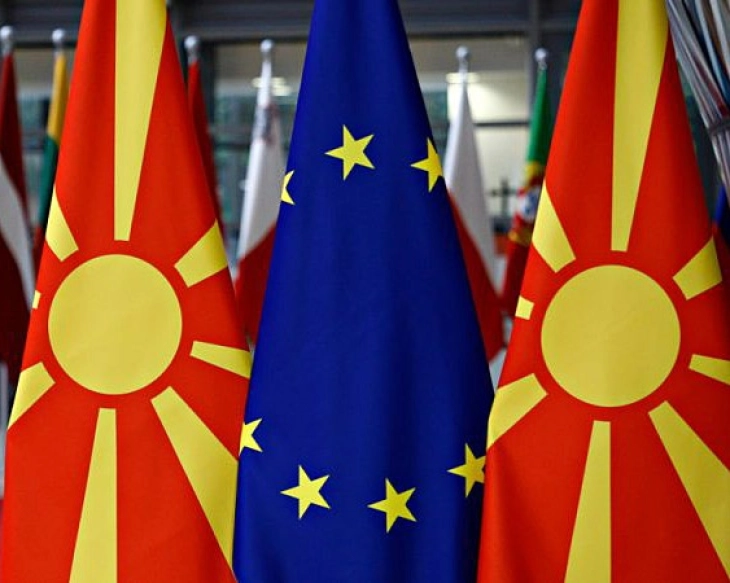Explanatory screening with EU on "Fundamentals" cluster concludes in Brussels

Skopje, 27 September 2022 (MIA) - A meeting on Chapter 23 "Judiciary and Fundamental Rights", due to take place Tuesday in Brussels, concludes the series of meetings as part of the explanatory screening on Cluster 1"Foundatmentals".
On Monday, an explanatory screening meeting was held on yet another area which is being introduced for the first time in the accession negotiations - "Functioning of democratic institutions", as part of the cluster "Fundamentals", the primary value the European Union is based on.
“Reforms are not only there to put new legislation in place but also to change the mentality and the governance style. We know and we have the experience regarding the importance of the rule of law but also independent and efficient institutions that guarantee it,” said Deputy PM Bojan Marichikj at yesterday's meeting.
The screening process for aligning the national legislation with that of the EU kicked off on September 15 and is expected to be completed by November 2023, according to Marichikj.
Meetings on the areas and chapters from the Fundamentals cluster took place from September 15 through September 27. All meetings were held in Brussels except the meeting on Chapter 18, Statistics, that took place in Luxembourg.
A bilateral screening will be held on November 11 - December 9 when North Macedonia will present the level of alignment with the EU law, the institutional structure to implement the aligned laws, plans on how it should be further aligned, building of institutional and administrative capacities as well as the required human, financial and IT resources for implementing European standards.
After this process ends, the European Commission should prepare a report on the screening, including findings and evaluation by the Commission on the level of alignment, capacities and conclusions and recommendations, the Secretariat for European Affairs has said.
Speaking to MIA to mark the start of the screening process, Deputy PM Marichikj said that according to some estimations, North Macedonia so far has aligned nearly 40 percent of its legislation with the EU's laws. "In fact, the screening is that phase of diagnosing where we are and what we need to do," he stated.







